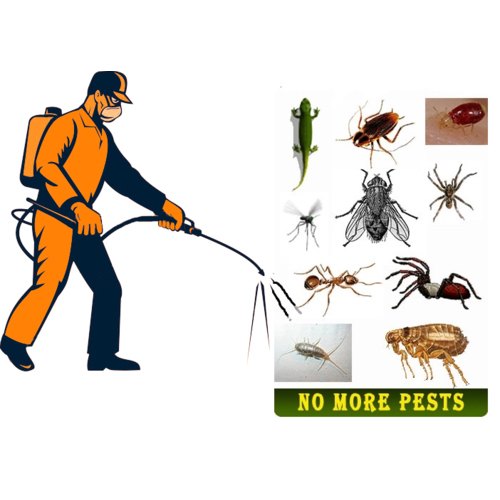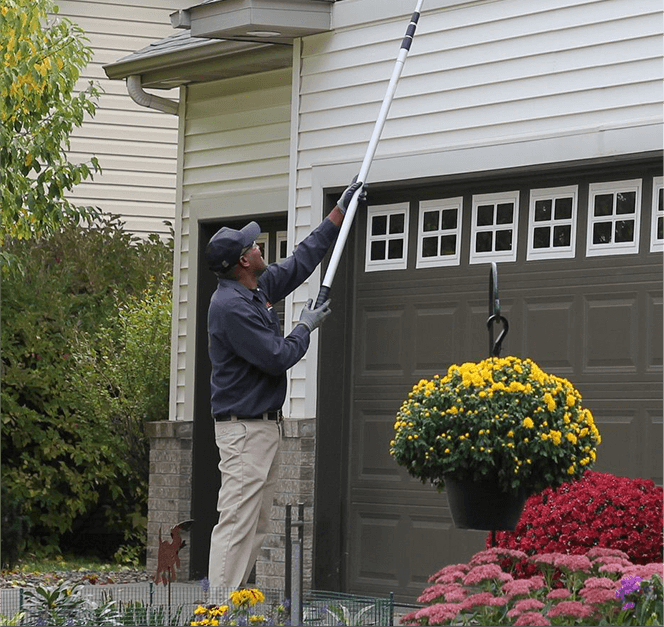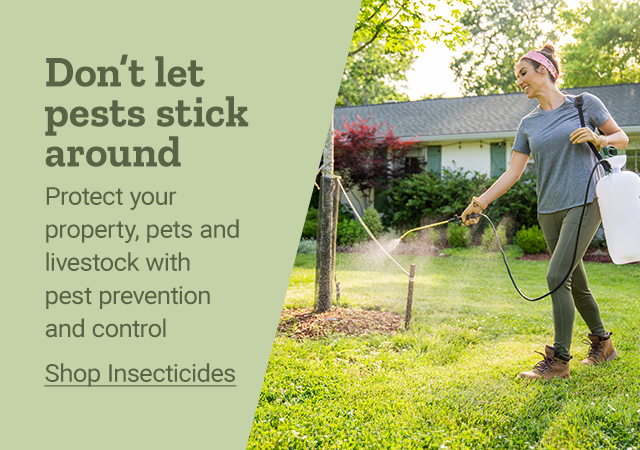Eco-Friendly Pest Control Homestead Options for a Healthier Home
Eco-Friendly Pest Control Homestead Options for a Healthier Home
Blog Article
Ultimate Guide to Pest Control: Benefits, Techniques, and Kinds
Insect control is an important facet of preserving a secure and healthy environment, whether it remain in residential, industrial, or agricultural settings (Pest Control Homestead). Recognizing the advantages, methods, and kinds of bug control approaches can dramatically influence the performance of parasite administration approaches. By checking out the diverse array of approaches available, one can tailor insect control initiatives to certain requirements and obstacles, making certain a sustainable and detailed option. The globe of parasite control is complex, with different devices and approaches at one's disposal.
Relevance of Bug Control
Insect control plays an important function in preserving the health and wellness and safety of both commercial and household atmospheres. By successfully managing and getting rid of parasites, individuals and services can protect against the spread of illness, protect residential property from damages, and ensure a clean and sanitary living or working room. Pests such as termites, rodents, and bugs can pose serious health and wellness dangers to humans and pets by contaminating food, transferring illness, and creating sensitive reactions. In addition, insects can cause structural damage to structures and facilities, leading to costly repair work and possibly compromising the security of passengers.
Carrying out routine bug control determines not just safeguards the physical health of people but also adds to their mental health by producing a comfy and secure atmosphere devoid of the problems and disturbances created by pests. In industrial setups, insect control is vital for maintaining a positive track record, complying with wellness and security regulations, and safeguarding the well-being of customers and workers. Overall, the importance of insect control can not be overemphasized in maintaining the wellness, security, and general lifestyle in both commercial and domestic spaces.
Common Bug Control Techniques
Provided the crucial function that pest control plays in protecting health and home, it is crucial to explore effective approaches for managing and getting rid of insects. Usual bug control strategies include an array of techniques customized to details parasite kinds. Physical techniques entail the use of obstacles, webs, or traps to avoid pests from entering or to record them. Organic control employs natural predators or microorganisms to control pest populaces, reducing the requirement for chemical treatments. Chemical control, such as chemicals, is commonly utilized however requires mindful application to reduce environmental impact. Additionally, incorporated insect monitoring incorporates different methods to achieve lasting pest reductions while decreasing threats to human health and the ecosystem. Cultural techniques, like correct waste administration and preserving tidiness, additionally play a critical duty in bug avoidance. Inevitably, one of the most efficient pest control approach commonly entails a combination of methods personalized to the specific parasite types and the environment in which they stay.

Organic Bug Control Techniques
When thinking about environmentally-friendly strategies to taking care of bug populations, organic parasite control techniques supply a sustainable remedy. One common natural bug control technique is biological control, which includes presenting natural killers, parasites, or pathogens to regulate parasite populations.
One more effective organic insect control technique is the use of natural chemicals obtained from natural resources such as microorganisms, minerals, or plants. These pesticides target certain pests while reducing injury to helpful insects and the ecological community. Neem oil, for example, is a preferred organic chemical that disrupts the development and reproduction of numerous bugs without triggering damage to various other organisms.
Cultural techniques like crop rotation, friend growing, and maintaining correct plant health likewise drop under natural pest control techniques. By producing a well balanced ecological community and lowering bug susceptabilities, these practices aid stop insect infestations without the requirement for damaging chemicals. Organic parasite control approaches not only protect the environment however also promote sustainable and long-lasting bug administration services.
Kinds of Parasite Control Solutions
Thinking about the varied methods available for taking care of bug populaces, a crucial aspect to discover following is the array of solutions supplied under the umbrella of bug control. Bug control solutions can be generally categorized into three primary types: domestic pest control, commercial insect control, and integrated bug monitoring (IPM)
Residential insect control services concentrate on managing and click for info eliminating insects frequently located in homes, such as ants, rats, cockroaches, and termites. These solutions usually entail the application of risk-free yet efficient therapies to safeguard the health and wellness and security of locals.

Integrated Insect Management (IPM) takes an alternative technique to pest control by incorporating organic, cultural, physical, and chemical approaches to manage insect populaces properly while reducing threats to human health and the setting. IPM concentrates on long-term avoidance and lasting bug monitoring techniques.
Integrated Pest Administration Strategy
An integrative technique to pest management, referred to as Integrated Insect Monitoring (IPM), integrates numerous strategies to effectively regulate pest populations while reducing risks to human health and the environment. Pest Control Homestead. IPM concentrates on protecting against bugs via a combination of biological, social, physical, and chemical control techniques. By utilizing an alternative approach, IPM intends to resolve the root creates of bug problems instead of just dealing with the symptoms
One key facet of IPM is making use of organic controls, such as presenting all-natural predators or virus to manage bug populaces. This method minimizes the reliance on chemical pesticides, therefore reducing the general my blog ecological effect. Cultural controls involve modifying the pest's habitat to make it less friendly, while physical controls consist of the use of obstacles or catches to exclude or capture insects.
IPM likewise stresses surveillance and regular examination to assess insect levels precisely and identify the most suitable control approaches. By integrating these varied strategies, IPM offers a reliable and sustainable method to pest management that promotes lasting services while securing human health and the environment.

Conclusion
By making use of various strategies such as organic methods and incorporated insect monitoring, people can properly handle and avoid pest problems. On the whole, implementing proper bug control procedures can help secure building, important link plants, and human health from the harmful effects of parasites.
Recognizing the advantages, methods, and kinds of bug control techniques can substantially affect the performance of pest administration techniques. Common pest control methods include a variety of techniques tailored to certain pest types. One usual natural pest control technique is organic control, which involves introducing all-natural killers, parasites, or pathogens to manage insect populaces.An integrative strategy to pest monitoring, known as Integrated Bug Management (IPM), combines different approaches to successfully control pest populaces while reducing risks to human health and wellness and the setting. Cultural controls entail modifying the parasite's environment to make it less hospitable, while physical controls include the usage of obstacles or catches to leave out or record insects.
Report this page